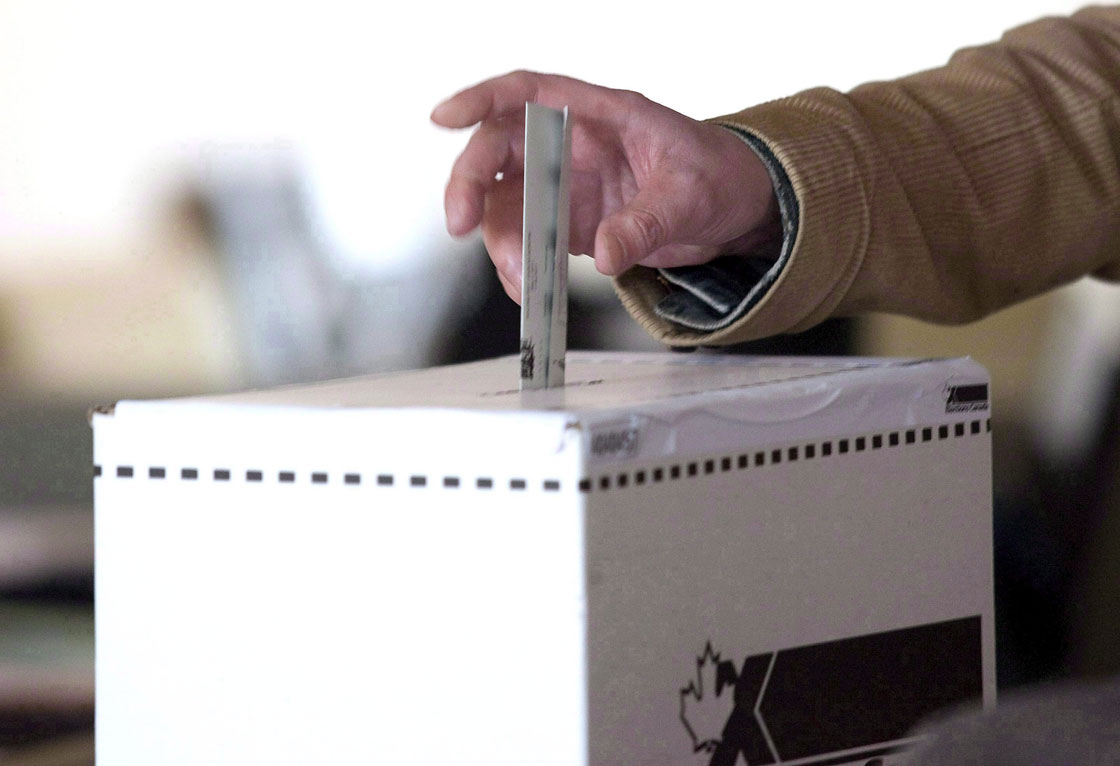TORONTO – The Ontario government will examine the possibility of implementing ranked-ballot voting for municipal elections.

Premier Kathleen Wynne said a private member’s bill that would allow Toronto to institute ranked balloting will be presented at the legislature.
“I think these are important ideas to discuss,” she said at a Monday morning press conference. “We are open to having these discussions, and so I look forward to the discussion and the debate when the private members bill comes forward.”
She did not say if she would lend her support to the legislation.
That legislation will likely not come to fruition until the 2018 election.
Supporters say the push to a ranked-ballot system will eliminate strategic voting and make the process fairer to the candidates.
READ MORE: John Tory officially enters race for mayor of Toronto
It would also ensure majority support from voters as under the current system, a candidate can ‘win’ an election with only 20 per cent support.
According to the Ranked Ballot Initiative of Toronto (RaBIT), a group supporting a ranked-ballot reform, in 2006, seven incumbent councillors were returned to office, even though most of their constituents didn’t want them back.
“We have members of city council who won their elections with 30 per cent or 20 per cent or even less,” Dave Meslin, a spokesperson for RaBIT said in an interview. “So we’re proposing a ranked ballot that ensures that every winner actually has a majority of support.”
The current system in place is called “first-past-the-post” where an election is won by the candidate receiving more votes than the other(s).
The ranked-ballot system would cut down on vote-splitting especially in contentious municipal elections such as the one the Toronto is facing this fall.
For instance, the more candidates that enter the mayoral race could make things easier for Rob Ford if NDP MP Olivia Chow, TTC Chair Karen Stintz, John Tory and David Soknacki split steal votes from each other.
READ MORE: Rob Ford registers for re-election, calls himself city’s ‘best mayor’ ever
Meslin suggested instituting ranked balloting would also cut down on the amount of negative campaigning that’s become more popular in recent elections.
“There’s an incentive to say nice things about their opponents because you want to be the second choice of their supporters,” he said. “We’re already seeing a lot of negativity and attacks in the mayoral election for Toronto, we think all of that would disappear with a ranked ballot.”
Last summer, Toronto city council voted to ask the province for the power to switch from first-past-the-post to ranked balloting.
If the province approves the request, it could very well open the door for other municipalities in the country to change their election process as well.
RaBIT has already received over 8,000 signatures on a petition to grant the “wishes of Toronto’s elected City Councillors.”
“The Liberals, New Democrats, Conservatives and Greens ALL use runoff voting to choose their own leaders and candidates,” the petition wrote. “If it’s good enough for them – it’s good enough for Toronto.”





Comments